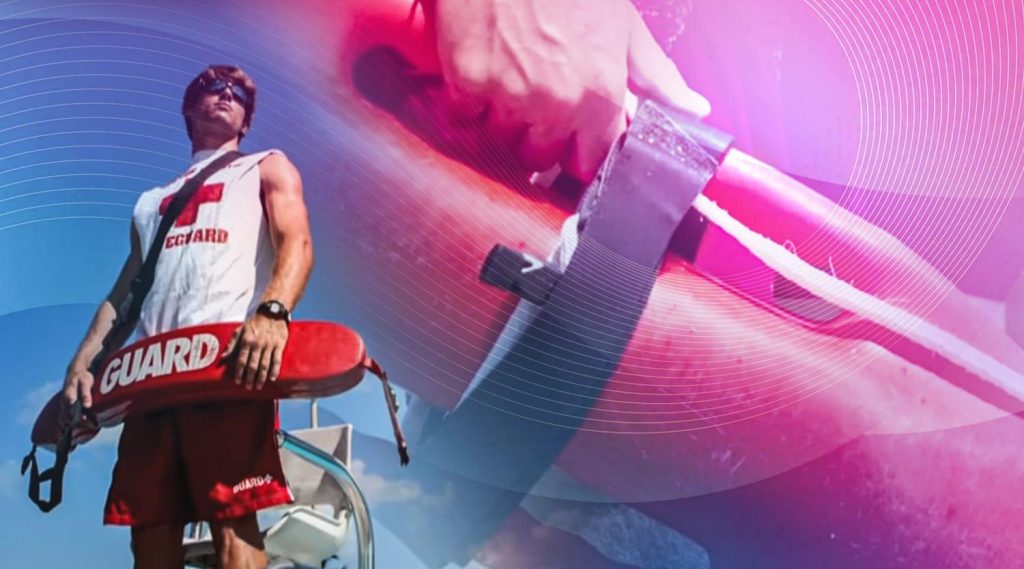Most people think of warm sunny days, a gentle sea breeze on warm nights when planning for a beach holiday. But safety should always be thought of above all else amongst the excitement, especially when booking a beach house. Knowing what to look for before you rent it could mean the difference between having the trip of your dreams or being embroiled in a potentially dangerous one, from water safety to property safety.
With ever-growing concerns about beach and pool safety due to a national shortage of trained lifeguards, professionals want tourists and residents to be aware and concerned about safety. Many professionals with experience have pointed out that trained lifeguards and lifeguard training courses are essential to keep tourists as well as residents safe during the peak holiday season at the beach.
From a safety perspective, here is what you should know before you rent your beach house for your next escorted holiday!

Evaluate Proximity to Water and Water Hazards
The most impressive thing when reading property listings is the distance from a lake or the sea. However, as such distance from water decreases, the chances of accidents — especially when children and animals are involved — increase. When looking at property listings, find out whether there are barriers such as fences or gates between the beach house and the sea.
Look for listings that say whether there are sea walls, dunes, or other barriers to the beach. Properties without any physical separation from water can be dangerous, especially at high tide or in severe weather conditions. When you include small children in the situation with unrestricted access to the water, a greater risk emerges.
Inspect for Safety Equipment Availability
A properly outfitted beach house should have important safety equipment. In this case, the minimum is fire extinguishers, smoke and carbon monoxide detectors, an available first aid kit, and life jackets available in several sizes. If the property has a hot tub or swimming pool, check if the property includes rescue equipment like life rings and reaching poles.
Also, ensure that the directions for using this equipment are unambiguous and easy to see. The house should separately and clearly mention all emergency contact information, such as local EMS and poison control.
Understand the Local Lifeguard Situation
Finding out whether lifeguards are present on the adjacent beach and during what hours is crucial. Many tourists believe that all public beaches are watched; yet, in many locations—particularly distant or less visited ones—this is not so.
Both public swimming pools and beaches have been impacted by the persistent lack of qualified lifeguards. Many local administrations have had trouble staffing beaches at full capacity, therefore generating rather serious safety issues.
The visitors bear all the responsibility for water safety in the absence of a lifeguard on call. This highlights even more the need to select a rental near beaches with posted safety instructions, well-defined swimming areas, and ideally, when one is present.
What to Look For In Property Listings
When going over property descriptions, note particular references to safety elements, including:
- Gated pool areas
- Security systems
- Fire escape plans
- Outdoor lighting
- Emergency instructions
Gold mines of information can also be found in guest reviews. Watch for any warning signs, including references to malfunctioning appliances, broken locks, or improperly illuminated staircases.
The Role of Lifeguard Training in Vacation Safety
Some families are enrolling in elementary water rescue or lifeguard courses before visiting the beach, as awareness of aquatic safety grows. CPR, identifying of drowning signs and basic water rescue methods are all addressed in these courses. Even a weekend course could significantly improve emergency preparedness.
Renters without a lifeguard presence at the beach or swimming pool should think about bringing someone trained in aquatic safety. The more your team knows, the more ready you will be to deal with unforeseen events.
Don’t Rely Solely on Technology
Smart home devices offer some security and a level of simplicity, but they should not replace real safety measures. While cameras, alarms, and motion detectors have some worth, fundamental safety rules—such as always supervising children and establishing clear instructions regarding water access—are priceless.
Expert Advice from the American Lifeguard Association
As questions about beach and pool safety increase, specialists keep demanding more general and financially accessible lifeguard training. Often mentioned by prominent print and digital media for their ideas on water safety, the American Lifeguard Association stresses the need for greater preparation and awareness, particularly during peak tourist seasons.
The Association claims that the countrywide lifeguard shortage has increased danger across numerous beaches and public pools. Recognizing dangers and advocating water safety education, they exhort both visitors and property owners to act preventively to protect themselves and others.
Final Word
Vacations are the time to enjoy and recreate. The most enjoyable places to be in summer are beaches. People travelling on vacation, to sunny beaches and renting out some beach houses to enjoy with their family, must first check for safety. Although seeing the sea from a beach property is a wonderful experience, one must make preparations for the trip, keeping safety first.
Families and travellers can enjoy a more relaxing experience by selecting properly equipped properties, confirming the presence of a lifeguard, and possibly taking lifeguarding lessons.
A little planning goes a long way – and can save a life.


